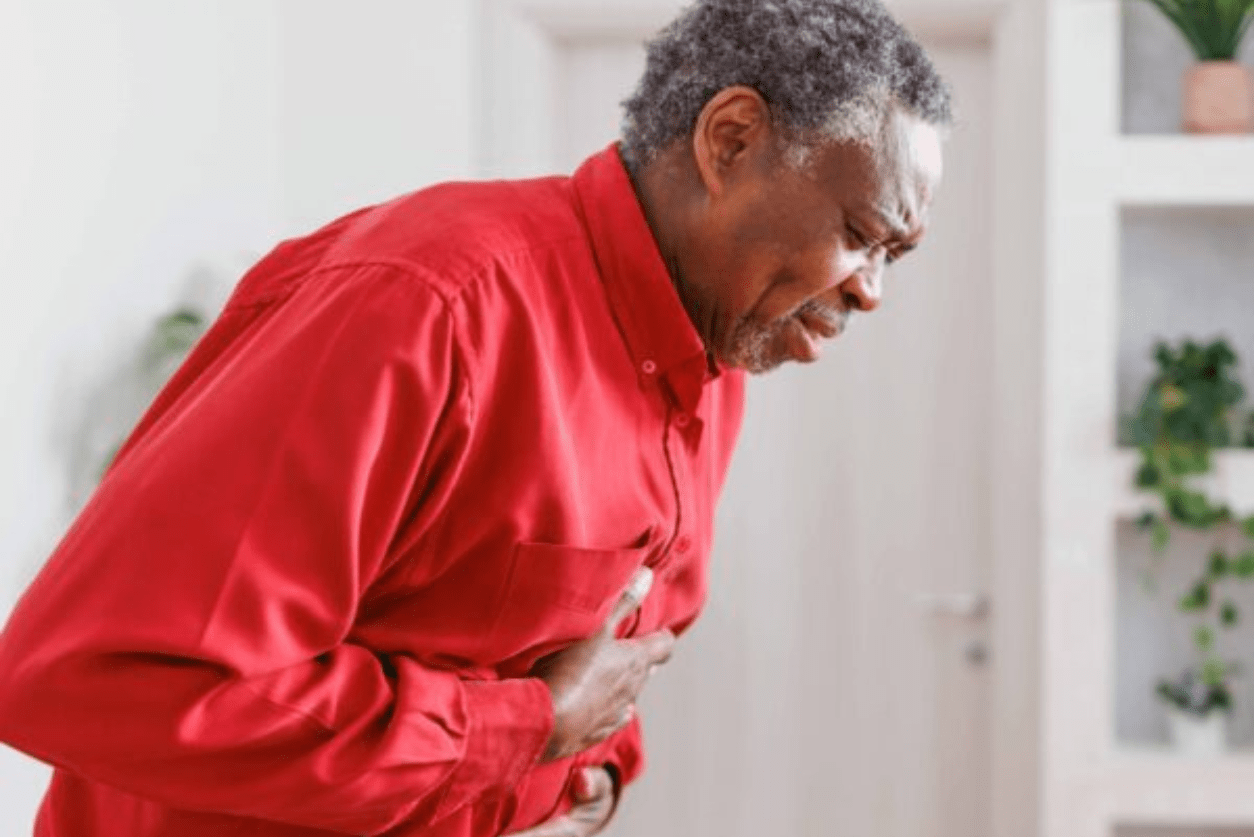
Understanding Gastric Ulcers
Have you ever experienced a burning sensation in your stomach that doesn’t go away? You might be dealing with something known as a gastric ulcer. Gastric or stomach ulcers are sores that develop on the stomach lining. They’re part of a larger group of peptic ulcers, including duodenal ulcers—sores on the upper intestine.
For a term that sounds quite complex, “peptic ulcer” is relatively simple to understand: “Peptic” refers to the stomach acid that contributes to the formation of these ulcers. An “ulcer” is a break in the skin or the lining of a body organ.
That burning sensation you’re feeling? That’s the stomach acid interacting with the ulcer.
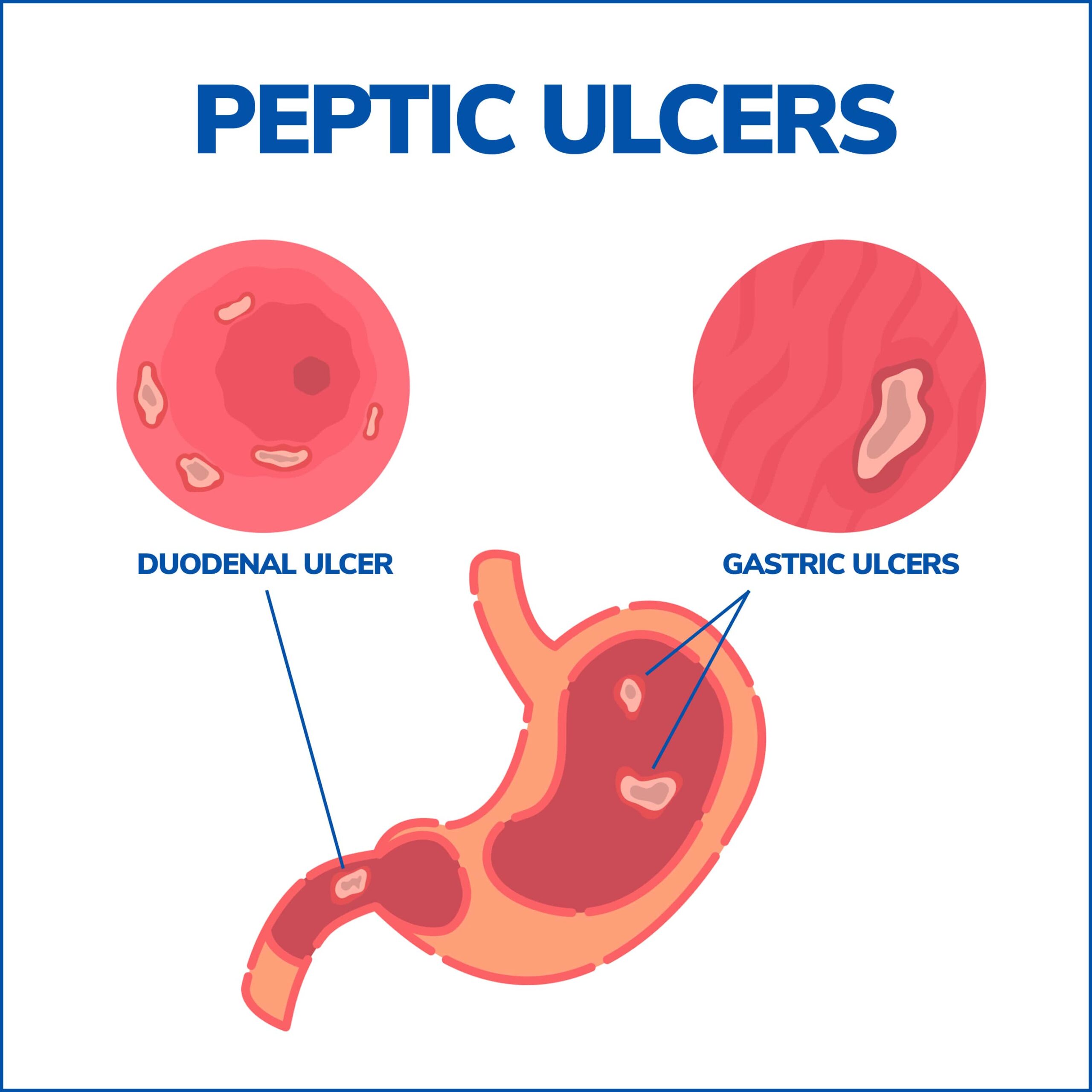
Causes of Gastric Ulcers
Gastric ulcers, known as stomach ulcers, develop due to specific underlying factors rather than randomly.
1. Infection with Helicobacter Pylori: Helicobacter pylori, or H. pylori, is among the most common contributors to gastric ulcers.
- It inhabits the mucous layer that safeguards the tissues lining the stomach and small intestine.
- Typically harmless, H. pylori can sometimes trigger stomach lining inflammation, leading to ulcers.
- This bacterium can be transmitted between individuals via close contact and through contaminated food or water.
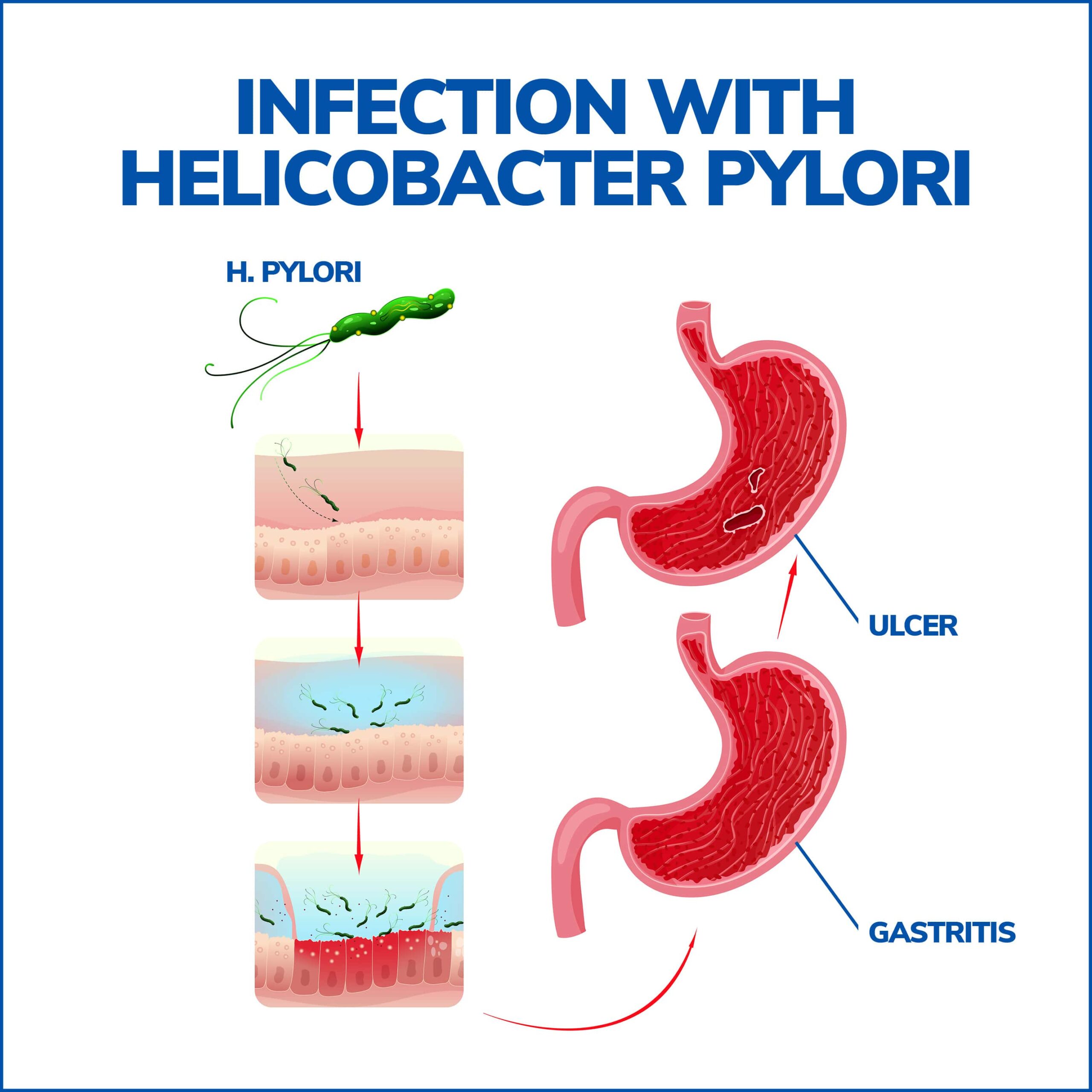
2. Prolonged Use of NSAIDs: Long-term use of non-steroidal anti-inflammatory drugs (NSAIDs), such as aspirin, Advil and Motrin (ibuprofen), and Aleve (naproxen sodium), is another major cause of gastric ulcers.
- NSAIDs work by blocking an enzyme named cyclooxygenase, which triggers inflammation and pain but also produces a substance that shields the stomach lining from stomach acid.
- The inhibition of cyclooxygenase by NSAIDs can weaken this protective barrier, leading to stomach lining damage and ulcer formation.
3. Presence of Stomach Tumors: Though less frequent, gastric ulcers can occur due to cancerous (malignant) or noncancerous (benign) stomach tumors.
- These tumors can interfere with the normal functioning of the stomach lining, giving rise to an ulcer.
4. Misconceptions and Other Factors: Contrary to popular belief, neither stress nor spicy food causes gastric ulcers. They can aggravate an existing ulcer by promoting stomach acid production and further irritating the lining. But excessive alcohol intake and smoking can elevate the risk of gastric ulcers as they can harm the stomach’s mucous lining, making it more prone to the damaging effects of stomach acid.
Recognizing the Symptoms
Recognizing the symptoms of gastric ulcers is crucial for timely treatment. These ulcers often remain undetected until their symptoms become severe enough to cause discomfort. You might be dealing with a gastric ulcer if you can relate to the following signs:
- Burning Stomach Pain: This is the most common symptom of a gastric ulcer. The pain, often described as a gnawing or burning sensation, usually occurs in the upper abdomen. It can vary in intensity and often feels worse when the stomach is empty, typically during the night or between meals. The discomfort might temporarily ease after eating or taking antacids.
- Bloating and Heartburn: These symptoms are related to indigestion. Bloating refers to a feeling of fullness or swelling in your abdomen, while heartburn is a burning sensation that can rise from your stomach up to your throat.
- Nausea or Vomiting: Some gastric ulcer patients experience nausea or vomiting. These symptoms might be more common in the mornings or when your stomach is empty.
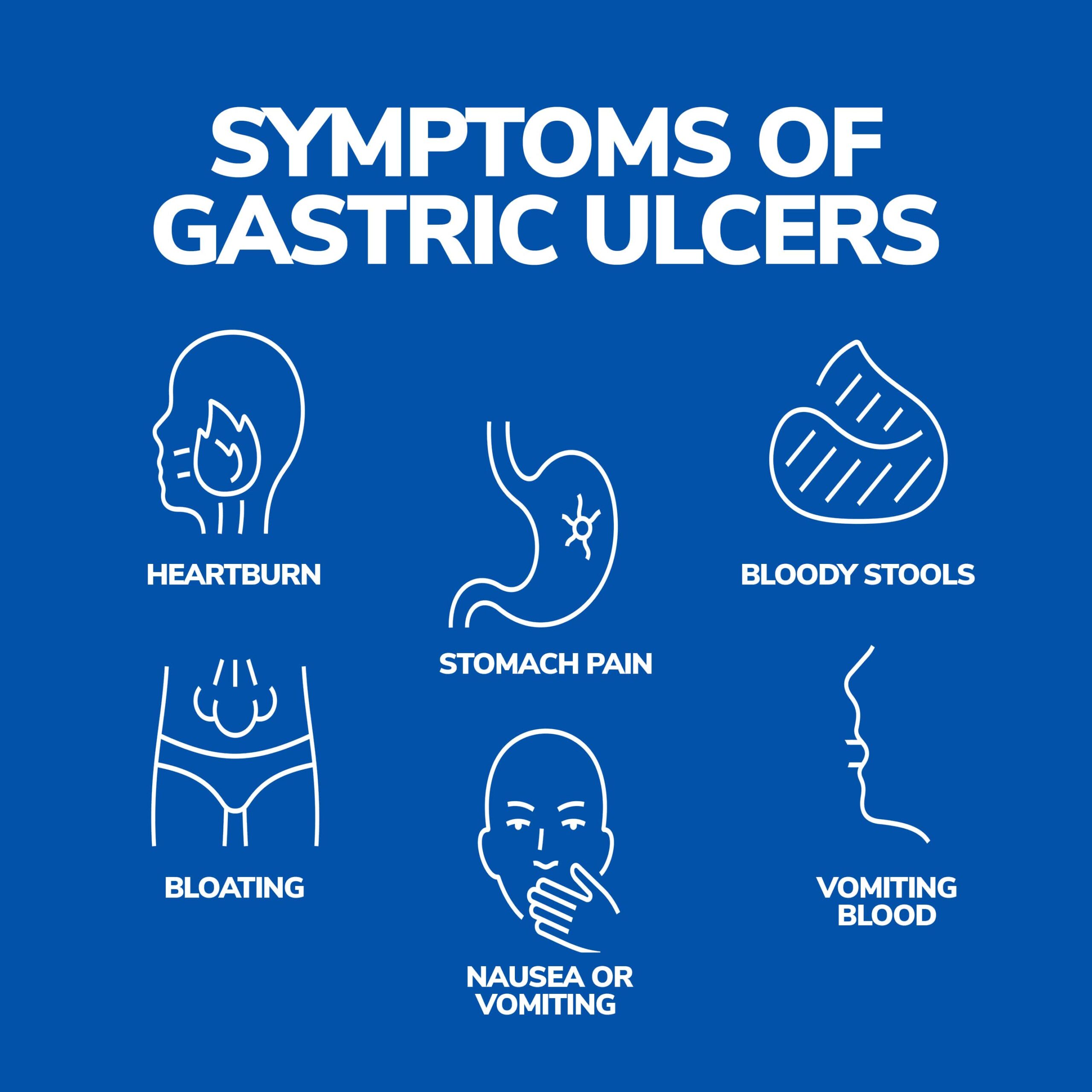
Severe Symptoms Indicating Complications
In some cases, gastric ulcers can cause more severe symptoms, indicating possible complications. These include:
- Dark or Bloody Stools: This can signal bleeding within the stomach, a complication of gastric ulcers. The blood in your digestive tract often appears as black, tarry stools. It can also give the stool a dark, sticky appearance.
- Vomiting Blood: This is another sign of a bleeding ulcer. The blood might appear bright red or look dark and granular, like coffee grounds.
- Unintended Weight Loss: Unexplained weight loss can occur due to decreased appetite or increased fullness following meals, common issues in individuals with gastric ulcers.
- Severe Abdominal Pain: If an ulcer perforates or breaks through the stomach wall, it can cause severe, sudden pain in the mid-to-upper abdomen.
Remember, the onset of any of these symptoms calls for immediate medical attention. While some gastric ulcers may not cause symptoms initially, recognizing these signs early can help you get the necessary treatment promptly, preventing potential complications. Always consult a gastroenterologist if you suspect you may have a gastric ulcer.
Gastroscopy for Diagnosis
A gastroscopy is a medical examination that involves inspecting the upper part of your digestive system, which includes your throat, esophagus, and stomach. This procedure is typically conducted to identify the root cause of various symptoms.
The process involves using a long, flexible tube equipped with a tiny camera. This instrument, known as a gastroscope, is inserted into your mouth, passed down your throat, and extended into your stomach.
Apart from diagnosis, a gastroscopy also allows for certain treatments, like removing tissue for biopsy or treating conditions like stomach ulcers.
What Are the Treatment Options?
The good news is that several effective treatment options are available for gastric ulcers. We typically recommend a combination of medications to treat the condition. These medications aim to achieve several goals: eradicating the Helicobacter pylori bacteria (if present), reducing the amount of acid your stomach produces, and protecting the lining of your stomach and duodenum.
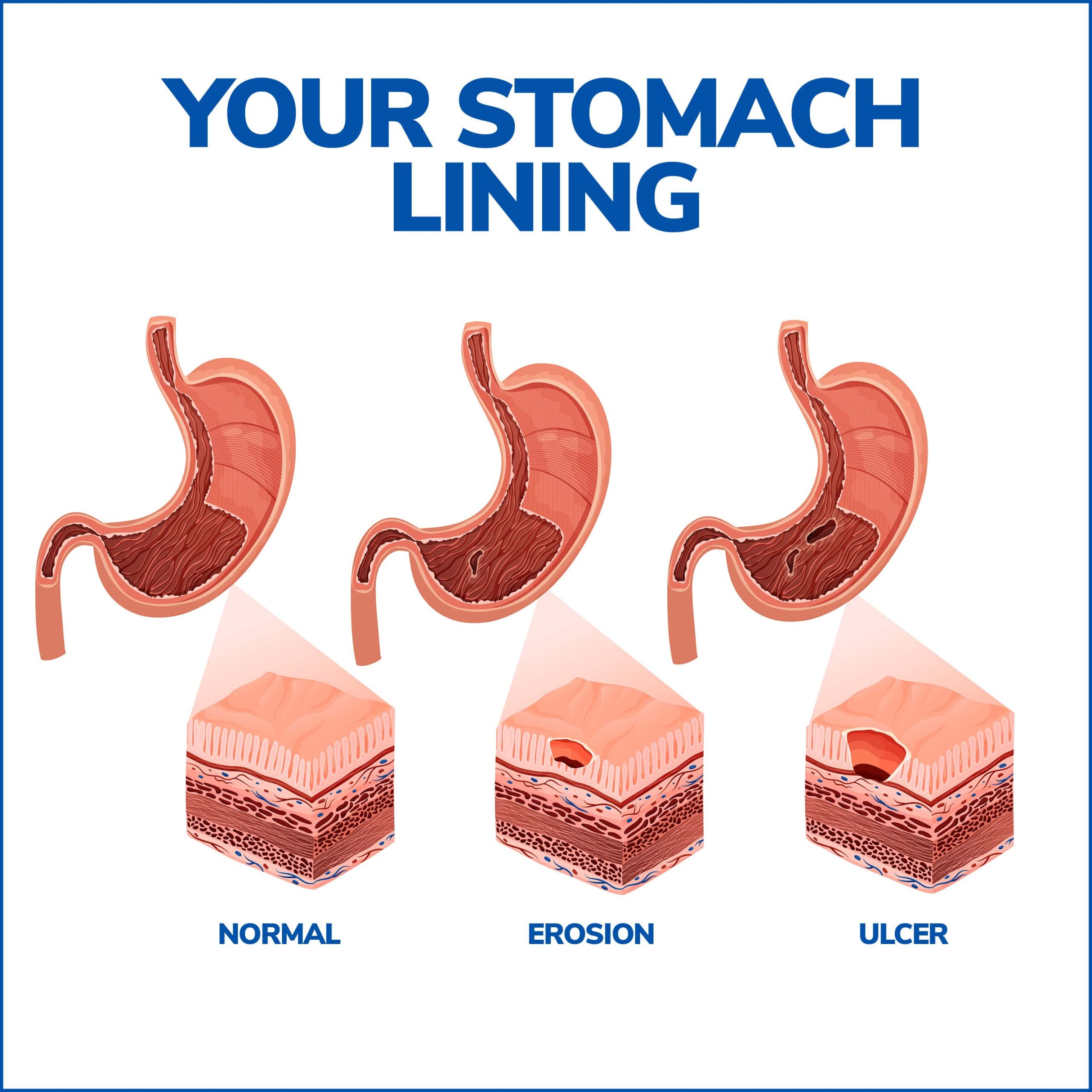
Let’s explore some of the available treatment options:
- Proton pump inhibitors (PPIs): These drugs reduce the production of stomach acid, which helps the ulcer to heal. They are often the first line of treatment for gastric ulcers. Examples include omeprazole, pantoprazole, and lansoprazole.
- Antibiotics: If H. pylori bacteria have caused your ulcer, you’ll need antibiotics to kill the bacteria. A combination of antibiotics is typically used over a period of 10-14 days.
- Histamine (H2) blockers: These medications reduce the amount of acid the stomach produces. While PPIs are more commonly used, H2 blockers like ranitidine and famotidine can also be effective.
- Antacids: While they don’t heal ulcers, antacids can provide temporary relief from stomach ulcer symptoms by neutralizing stomach acid and reducing pain.
Surgical intervention may become necessary in cases of severe or unresponsive gastric ulcers. The main surgical options include:
- Ulcer Excision: The surgical removal of the ulcer, usually conducted for large or treatment-resistant ulcers.
- Acid Production Reduction: Procedures like vagotomy or antrectomy can reduce stomach acid production, which promotes ulcer healing.
- Bleeding Control: Emergency procedures such as ligation or endoscopic injection to halt significant ulcer-induced bleeding.
Remember, while effective, these interventions are typically a last resort due to potential surgical risks. Always thoroughly discuss the most suitable course of action with your gastroenterologist.
Prevention Tips
You can help reduce the risk of developing these painful and potentially serious conditions. Here are some key prevention tips:
- Follow a healthy diet, avoiding spicy and fatty foods.
- Limit alcohol and quit smoking.
- Manage stress through techniques like meditation and exercise.
- Reduce the use of non-steroidal anti-inflammatory drugs (NSAIDs).
- Practice good hygiene and avoid sharing personal items.
- Treat H. pylori infection promptly.
- Limit caffeine intake.
- Maintain a healthy weight through exercise and a balanced diet.
- Use pain relievers in moderation, at the lowest effective dose.
- Consult a gastroenterologist for personalized advice.
Contact Us
If you’re experiencing gastrointestinal issues, please contact Gastroenterology of Greater Orlando. Our team of experts is here to help diagnose and treat your condition with the utmost care and expertise. Our practice began more than 15 years ago and has emerged as one of the leading gastroenterology practices in central Florida. We perform a host of diagnostic procedures using state-of-the-art equipment in a friendly, comfortable, and inviting atmosphere where patient care is always a top priority. Contact us today!